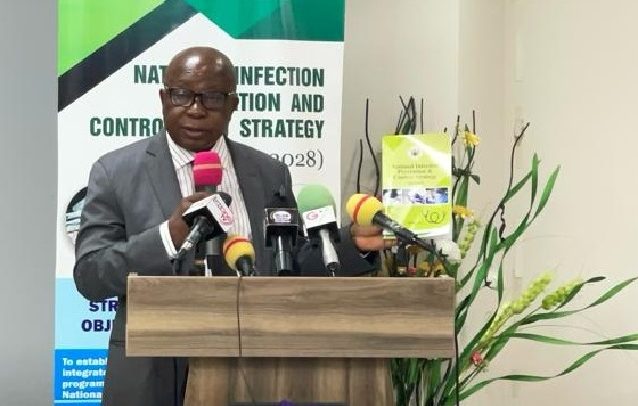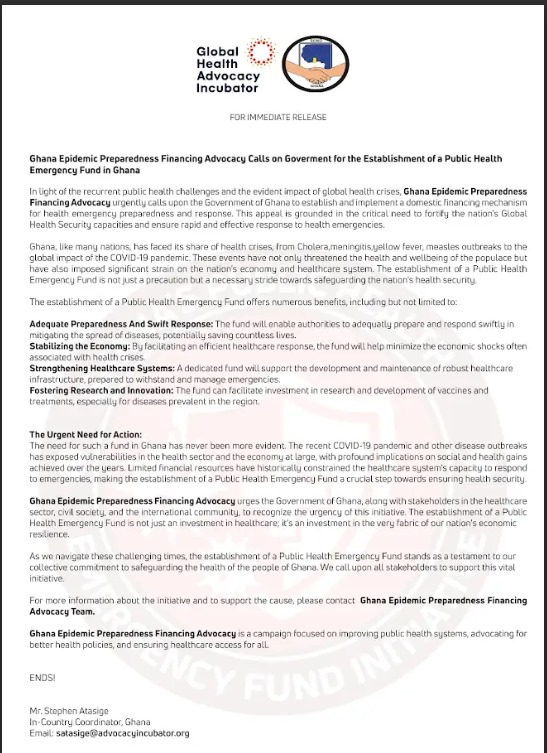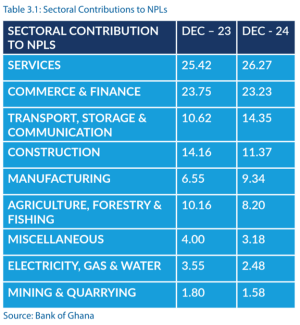
Neonatal or new-born death-- defined as death occurring between 0 and 28 days in live-born infants--is a global public health problem, with 2.9 million neonates dying annually, three quarters of which deaths occur in the first seven days of life.
In Ghana, new-born deaths account for over 40% of all infant deaths, the vast majority of which deaths (75%) occur during the first week of life, with 50% occurring in the first 24 hours.
Recent data from the United Nations International Children's Fund (UNICEF) indicate that infections (31%), preterm birth complications (29%) and intrapartum-related events (27%) have been identified as the primary causes of neonatal mortality in Ghana9.
For older children, the data indicates, the common causes of death are pneumonia (17%), diarrhoea (9%), and malaria (7%), with an added risk of morbidity from malnutrition, which underlies about 50% of child mortality in Ghana.
In an effort to address the situation by reducing neonatal mortality rate from 32/1000 live births in 2011 to 21/1000 live births in 2018 (5%/year) and to help reduce the institutional neonatal mortality rate by at least 35% by 2018, a New-born Health Strategy and Action Plan (2014-2018) was developed.
Among the key strategies outlined in Ghana's New-born Health Strategy and Action Plan (2014-2018) is 'promoting Advocacy, Communication and Social Mobilisation (ACSM) and other community-based interventions.
The New-born Health Strategy mandates the development of a focussed advocacy and communication strategy in support of the implementation of the strategy at both the facility and community levels, coupled with specific community-based interventions, including community mobilisation and home visits.
The goal of the Advocacy and Communication Strategy is to position new-born and child deaths as a national emergency requiring immediate and urgent joint stakeholder/sectoral action from the national level to the community level, in an effort to achieve the goal of the National New-born Health Strategy-- to reduce the neonatal mortality rate from 32 per 1000 live births in 2011 to 21 per 1000 live births in 2018.
As a support strategy to the Child and New-born Health Strategies, the implementation of the Advocacy and Communication Strategy is expected to follow the same management arrangements as reflected in the New-born Health Strategy.
Another reason for developing the Advocacy and Communication Strategy was that whereas many deaths occur at home and in communities, the stakeholders at that level have not been fully engaged to take up their responsibility.
Community education and mobilisation is yet to be accorded its rightful position as an effective tool in successful new-born health care delivery. Furthermore, health workers are inadequately mobilised to recognize their responsibility and adopt appropriate actions to address the problem.
The negative attitude of health workers towards clients has been cited as one the major challenges to building a supportive environment for client uptake of services.
In other words, poor provider/client relationships have been identified as often depriving clients of the benefits of required health education on what to do and also cut off feedback to health workers--which needs to be urgently addressed by the system through effective, systematic and coherent provider training in Behaviour Change Communication (BCC).
The Strategy and Work Plan, therefore, recommends that for full term babies, 2.5 kg and above, bathing should be delayed for the first twenty-four hours after birth, while low birthweight babies and preemies should not be bathed until so advised by the midwife or paediatrician.
The Strategy and Plan also recommends that breastfeeding should start within 30 minutes after delivery and that the baby should remain only on breast milk from birth till six months.
It also recommends that mothers visit the health facility two times in the first week after birth for both baby and mother to be examine and treated if necessary. According to the Strategy and Work Plan, mothers should start giving a variety of other foods at six months and continue breastfeeding until the child is, at least, two years old.
The Strategy and Work Plan further requires that at birth, new-born babies should be given two vaccines against TB and polio and the child's immunization should be completed before the child is two years old.
For health workers, the Strategy and Work Plan recommends that the baby should be wiped immediately after birth using a soft, clean and dry cloth; wrapped with another clean, dry cloth to keep the baby warm; breast feeding should be initiated within thirty minutes after birth; Chlorhexidinegel should be applied on the cord immediately after cutting; and the cord must be kept clean and dry and that the baby should be kept in skin-to-skin contact with the mother for at least one hour.
The writer is an officer of the Information Services Department.
Read Full Story


















Facebook
Twitter
Pinterest
Instagram
Google+
YouTube
LinkedIn
RSS